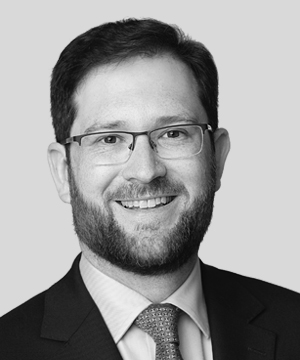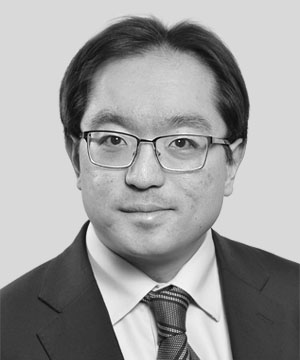
As we move through the third decade of the 21st century, geopolitical threats are high on the agenda. The war in Ukraine and the ever-changing relationship between China and the West are pushing wealthy individuals with assets around the globe to reconsider the safest places in which to base both their families and their wealth. There are a number of other drivers that may affect individuals’ decisions including personal security and applicable immigration and tax rules. While the UK, and particularly London, continues to attract its share of internationally mobile individuals, a recent report by Henley & Partners, which tracks wealthy individuals around the world, found that New York tops the list of 20 cities with the most millionaires in the world. Despite the US dominating with a total of six cities in the top 20, it is Dubai and Abu Dhabi that appear to have the fastest growing populations of high net worth individuals (HNWIs), growing their millionaire ranks 18% and 16% respectively.
Russia, at the other end of the scale, has seen the largest outflow of millionaires of any country in the world, with data suggesting that as many as 15,000 millionaires were expected to have emigrated by the end of 2022, many of them heading to the United Arab Emirates.
James d’Aquino, Partner in the London Private Client team at Penningtons Manches Cooper, says: “Dubai has actually managed to remain fairly open for business during the difficulties of the past few years. There were a lot of wealthy people that decided to spend a significant amount of time there or to relocate indefinitely during the pandemic and subsequently given its central geographic location and ability to move around freely.”
“The pace of change is attractive in Dubai; it feels entrepreneurial, interesting and people want to do business there.”
He says the UAE, and Dubai in particular, has long been gearing up to attract more millionaire immigration from around the world. “Dubai has done incredibly well over the past few years to tread an interesting line in terms of attracting both professionals and wealthy people and continuing to maintain a level of control to try and ensure that the growth is sustainable,” explains d’Aquino.
“During Covid they were open and people were able to get there and move about relatively freely. The big change now is that they are also managing to attract people who are bringing with them a greater economic substance, as wealthy individuals opt to run their businesses from there.”
He adds: “For some years, people were living in Dubai but still holding their wealth in Swiss banks or offshore structures. Now, Dubai is making its way from a frontier market to a more secure regulated jurisdiction as a safe, credible hub for many service providers including trust companies, banks and law firms.”
The UAE is continuing to prove attractive to Europeans, Indians and Africans as well as relocating Russians. “The pace of change is attractive in Dubai,” says d’Aquino. “It feels entrepreneurial, interesting and people want to do business there.”
Martyn Crespel is Chairman of the UAE business at private wealth fiduciary and corporate administration services company Praxis in Dubai and says as many as 4,000 millionaires were expected to have arrived in the UAE in 2022, more than anywhere else in the world.
Crespel says: “The vision of the ruler of Dubai, Sheikh Mohammed bin Rashid Al Maktoum, is that the current population of around 3.4 million people should grow another 3 million by 2040. It is now considered well-established as a jurisdiction – the climate speaks for itself and it is considered comparatively stable and secure, with a neutral political outlook and worldclass infrastructure.”
He adds: “From a legal and financial perspective, we have a pretty well-developed regulatory framework that is improving all the time, and with new visa opportunities there are now myriad ways one can obtain a visa to come and live here.
“This is now a highly skilled, professional new wealth hub with all the quality advice available for those wishing to structure their affairs as well as making it their home.”
Safe and Stable
Another burgeoning wealth hub that is currently enjoying a huge influx of HNWIs is Singapore, which was expected to have attracted some 2,800 millionaires to its shores in 2022. Many of its new arrivals hail from mainland China and other parts of Asia, with Singapore rapidly eclipsing Hong Kong as the most popular place for wealthy individuals in the region to live and work.
A wave of capital started moving from Hong Kong into Singapore in 2019 after the Chinese authorities ramped up their response to pro-democracy protests in Hong Kong. “At that point, people who had preferred Hong Kong started to feel it wasn’t safe anymore,” says Ryan Myint, Partner in the Private Client team at Penningtons Manches Cooper in London.
“A number of wealthy individuals started leaving mainland China for reasons of personal safety and Hong Kong, which had previously been viewed as the centre with the strongest and most stable rule of law in Asia, became undermined by political interference from mainland China.”
Rich Hong Kong residents became concerned about China’s potential ability to run roughshod over the laws relating to property and commerce. “When people are looking for the best jurisdiction to hold their wealth, their prime concern is stability,” says Myint. “That is different to what they are looking for in the jurisdictions in which they make their wealth. Often people make their money in frontier markets that are riskier and they accept that because of higher returns. Having accumulated capital though, they typically want to base it somewhere safe and stable so that if their business subsequently goes wrong they still have the family nest egg to distribute.”
The ongoing relocation of capital from Hong Kong into Singapore has since been spurred on by China’s handling of Covid-19, where it only recently ended its zero-tolerance approach, which also extended into Hong Kong. “Even now, the scale of quarantines and the strictness and severity of lockdowns in China is like nowhere else in the world,” says Myint. “That is another reason people have been leaving Hong Kong and mainland China – and one of their primary destinations has been Singapore.”
There are many reasons why Singapore has benefited from the dislocation, including the fact that the Chinese language is widely spoken and there are cultural similarities.
Rachel Yao leads Carey Olsen’s trusts and private wealth practice in Asia and is based in Singapore. She says: “At the moment, people from all across Asia are quite keen to park their money in Singapore or move to Singapore with their families. For those leaving China that is easy to understand and relates to the internal policies of the current government, tensions between the US and China and the tensions with Taiwan.”
She adds: “Singapore is an ideal place for Chinese clients, firstly because of its proximity to mainland China, which means that people can move the headquarters of their business to Singapore and there is no time difference and minimal language or cultural barriers with China – it is just a five-and-a-half-hour flight away.
“Singapore is also an easy platform for investment into the whole of southeast Asia. There are a lot of ultra-HNWIs from India, Malaysia and the Middle East also coming to Singapore right now.”
The appeal of the Singapore family office
As the number of HNWIs in Asia continues to grow, the tax incentives and exemptions that Singapore has introduced to encourage the establishment of single-family offices mean it is often there that HNWIs head for wealth management advice and structuring.
Another especially big draw is the residency rights for family members that come with establishing a family office in Singapore, which does not have the fast-track ‘investor visa’ or equivalents that the UK and other countries offer to HNWIs. Establishing a family office is one of the most important routes to gaining residency.
The number of new family offices established in Singapore has increased significantly in the past three years, from 27 in 2018 to 453 in 2021, and prominent multinational family offices are now often choosing to establish a satellite family office on the island as a gateway to access investment opportunities in Asia.
Over the past 20 years, global law, accounting, asset management and banking firms have established and grown operations in Singapore, meaning the government’s efforts to attract family offices have rapidly borne fruit.
The Singaporean government is taking active steps to encourage professionals and the wealthy to relocate, promoting a new single family office regime, relaxing work permit regulations and investing in education and healthcare provisions. “Singapore is an independent country that is really well regulated and the government is forward thinking and liberal,” says Yao. “People can see what is happening and are confident it is making Singapore more attractive.”
“ We are seeing a flight to stability, to transparency of tax rules and, ultimately, to personal security.”
At a time of so much geopolitical uncertainty, hubs such as Singapore and Dubai can steal a march by offering wealthy individuals a safe haven. “All of these places have things in common,” says d’Aquino. “We are seeing a flight to stability, to transparency of tax rules and, ultimately, to personal security.
“We take for granted that we can walk around safely in London and the same is true in Dubai and Singapore. But in other parts of the world the super wealthy often fear being kidnapped or having their assets seized without good reason. That is what drives them to move their families and their money to these growing hubs.”
 Back to Edition 3 - The global issue
Back to Edition 3 - The global issue




 Back to Edition 3 - The global issue
Back to Edition 3 - The global issue



